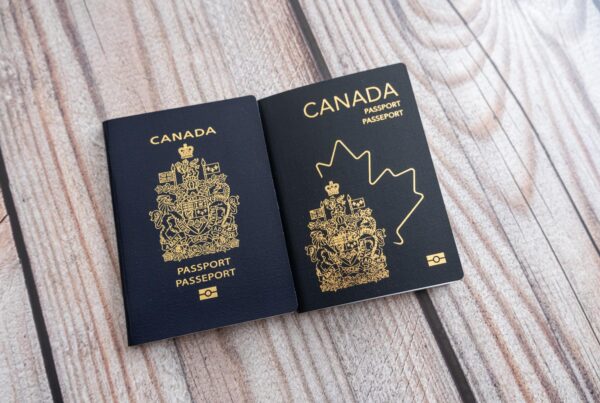Detention reviews in Canada represent a critical aspect of the immigration process, offering individuals an opportunity to challenge their detention status. As we delve into the complexities of Canadian detention reviews, we’ll explore the overview, legal framework, the role of the Immigration and Refugee Board (IRB), key considerations, detainee rights, challenges, the importance of legal representation, and recent developments in the immigration detention review processes.
Overview of Detention Reviews in Canada
In the realm of immigration, detention reviews serve as a mechanism to assess the necessity of holding individuals in detention. These reviews are pivotal, providing detainees with a chance to challenge their continued detention and seek alternatives. Understanding the process is crucial for those involved, and it begins with a comprehensive overview.
Legal Framework for Immigration Detention Reviews
Navigating the intricate web of the legal framework governing immigration detention reviews is essential. Canadian immigration law outlines the circumstances under which individuals can be detained, emphasizing the need for periodic reviews to ensure detention remains justified. These legal foundations set the stage for a structured and fair examination of each detainee’s case.
Role of the Immigration and Refugee Board (IRB)
The Immigration and Refugee Board plays a central role in the Canadian detention review process. Acting independently, the IRB conducts hearings to assess the appropriateness of continued detention. This impartial body evaluates evidence, considers legal arguments, and ultimately decides whether the individual should be released or remain in custody. The IRB’s involvement ensures a fair and unbiased evaluation of each case.
Key Considerations in Detention Review Hearings
Detention review hearings are intricate proceedings where the fate of individuals hangs in the balance. One of the critical considerations in these hearings is the reason for detention. The authorities must establish a compelling case for the necessity of continued detention, emphasizing the potential flight risk or danger the individual may pose to the public. This aspect demands a thorough examination of the circumstances surrounding the detainee, requiring legal expertise to dissect and challenge any questionable grounds for continued custody.
Moreover, the assessment of flight risk involves a nuanced evaluation of factors such as ties to the community, family connections, and the availability of suitable alternatives to detention. The goal is not only to ensure the individual’s appearance at future immigration proceedings but also to balance the preservation of public safety. These multifaceted considerations make each detention review hearing a unique puzzle, demanding a comprehensive and customized approach to address the specific intricacies of each case.
Rights and Responsibilities of Detainees
The rights granted to detainees are pivotal in upholding justice during the review process. Legal representation, a cornerstone right, empowers detainees to present their cases effectively with the guidance of skilled Canadian immigration lawyers. Simultaneously, detainees must shoulder responsibilities that contribute to the process’s integrity, emphasizing cooperation with authorities and providing accurate information. This delicate balance between rights and responsibilities ensures the detention review operates justly, requiring a nuanced understanding of legal intricacies and a commitment to due process.
As detainees navigate this intricate balance, the importance of legal guidance becomes evident. Canadian immigration lawyers not only safeguard detainees’ rights but also guide them through the process, fostering an environment conducive to a comprehensive and fair assessment of their case. In essence, the rights and responsibilities of detainees are not mere formalities but crucial components shaping the dynamics of the detention review process.
Challenges and Common Issues in Detention Reviews
Despite the system’s intentions, challenges and common issues persist in detention reviews, creating hurdles for both detainees and the review process itself. Overcrowded dockets pose a significant challenge, often leading to delays in hearings and decisions. These delays can prolong the period of detention, impacting the mental and emotional well-being of individuals awaiting review. Limited access to legal representation exacerbates the situation, making it difficult for detainees to articulate their cases effectively. Additionally, language barriers can impede communication, hindering detainees from fully understanding the proceedings and presenting their arguments. Recognizing and addressing these multifaceted issues is essential for not only improving the overall efficacy and fairness of the detention review process but also for upholding the rights and well-being of those involved.
The Importance of Legal Representation: Canadian Immigration Lawyers
Legal representation emerges as a crucial factor in the trajectory of detention reviews, with Canadian immigration lawyers playing a pivotal role in safeguarding the rights of detainees. Beyond just navigating the legal intricacies, these lawyers serve as advocates, ensuring detainees comprehend the complexities of the process and empowering them to make informed decisions. A skilled and experienced lawyer can present compelling cases, challenging the grounds of detention and persuading the Immigration and Refugee Board to grant release. The impact of legal representation extends beyond the confines of the review room, influencing the overall fairness and integrity of the immigration detention review system. Investing in qualified legal support significantly enhances the likelihood of a favorable outcome, underscoring the importance of competent representation at this critical juncture of the immigration process.
Recent Developments and Changes in Immigration Detention Review Processes
The landscape of immigration detention reviews in Canada is dynamic and subject to periodic changes and updates that shape the procedures and criteria applied during reviews. Staying informed about recent developments is crucial for all parties involved, including detainees, legal representatives, and immigration officials. Recent changes may introduce modifications to the review process, altering timelines, criteria for release, or the introduction of alternative forms of detention. Adapting to these changes is imperative for a proactive and informed approach, ensuring that all stakeholders are well-equipped to navigate the evolving terrain of immigration detention reviews. Continuous awareness and adaptation to these developments contribute to a more responsive and equitable detention review system, reflecting the commitment to justice and fairness within Canada’s immigration framework.
Secure Your Immigration Future: Partner with Joshua Slayen, Your Trusted Canadian Immigration Lawyer
Embarking on the journey through the intricate realm of Canadian detention reviews can be challenging, but you don’t have to face it alone. For expert guidance and unwavering support, turn to Joshua Slayen, a seasoned Canadian immigration lawyer with a proven track record in navigating the complexities of detention reviews. Joshua’s dedication to client success and in-depth knowledge of the immigration system make him the ideal ally in your legal journey. Don’t let uncertainty linger; empower yourself with the expertise of Joshua Slayen. Contact us today to ensure your rights are protected and your path through immigration detention review is guided by a skilled professional.









